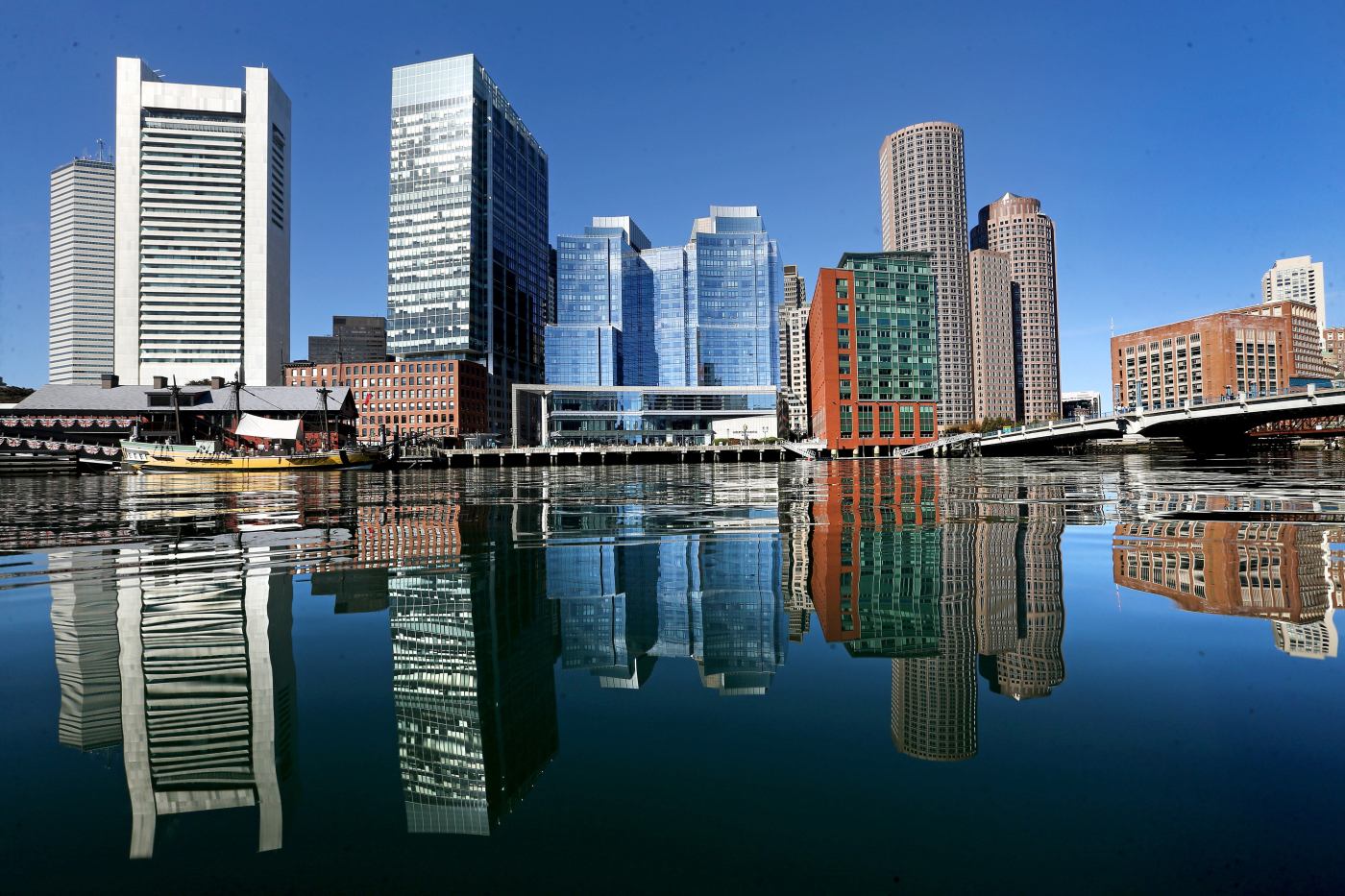
Empty office buildings have Boston staring down $1B budget shortfall
The city’s eroding commercial tax base, driven by hybrid work practices that have left office buildings largely vacant, could leave Boston with a more than $1 billion budget shortfall in five years, a scenario that may lead to higher taxes for residents.
Those are the findings of a new report compiled by the local think tank Boston Policy Institute in conjunction with The Center for State Policy Analysis at Tufts University, which honed in on “The Fiscal Fallout of Boston’s Empty Offices.”
“As a result of the ongoing collapse in office values, Boston is likely to face a cumulative revenue shortfall of more than $1 billion in the next five years,” the report states. “With no clear prospect for recovery, such shortfalls could persist for decades, triggering a long-term decline in public services and economic vitality.”
The report points out Boston’s large reliance on property taxes, which make up roughly 75% of total revenue in the city’s $4.28 billion budget.
Given that the city chooses to shift the maximum allowed rate of the tax burden from the residential to commercial side, much of the city budget revenue is reliant on commercial property taxes, which becomes a problem when a lower demand for office space leads to declining commercial real estate values, the report states.
“More than one-third of Boston tax revenue comes from commercial property taxes, by far the highest proportion among major U.S. cities,” the report states. “This leaves Boston especially vulnerable to falling real estate values.”
Related Articles
Boston City Council punts congestion pricing discussion to future hearing
Boston city councilor pulls Israel-Hamas cease-fire resolution: ‘May cause more division’
Pay up drivers: Boston City Council weighs congestion pricing for Hub access
United Way, state now ‘evaluating’ Fort Point migrant overflow shelter proposal
Boston to house migrants, homeless adults at new Mass and Cass overflow shelter
The value of office space is expected to decline 20-30% by 2029, which, when coupled with the expectation that commercial real estate prices will fall by 12-18%, will leave Boston with a cumulative revenue shortfall of $1.2-$1.5 billion over the next five years, the report states.
That scenario will result in a “new normal” for the city, where annual tax collections starting in 2029 will be roughly $500 million below the current trend — amounting to an approximately 10% annual loss in revenue — which may leave residential taxpayers on the hook for making up the difference, the report states.
“Boston will have few ways to compensate for this lost tax revenue,” the report states. “Massachusetts precludes cities from introducing local sales and income taxes, and fully offsetting the decline in commercial real estate would require a 25-30 percent increase in residential property taxes.”
State lawmakers could also give the city authority to impose a local sales tax, or introduce a congestion pricing charge for downtown driving, which the Boston City Council is set to discuss at a future hearing, the report states.
The report also makes a pitch for more state aid, and concludes that if the city does not like any of these options, it will have to look into cutting salaries and services, “with potentially serious implications for public safety, climate resilience, and efforts to attract future residents.”
“This is where we push up against the dreaded doom loop,” the report contends, “which may not be the most likely outcome but which is more worrisome than it’s been in 50 years.”

